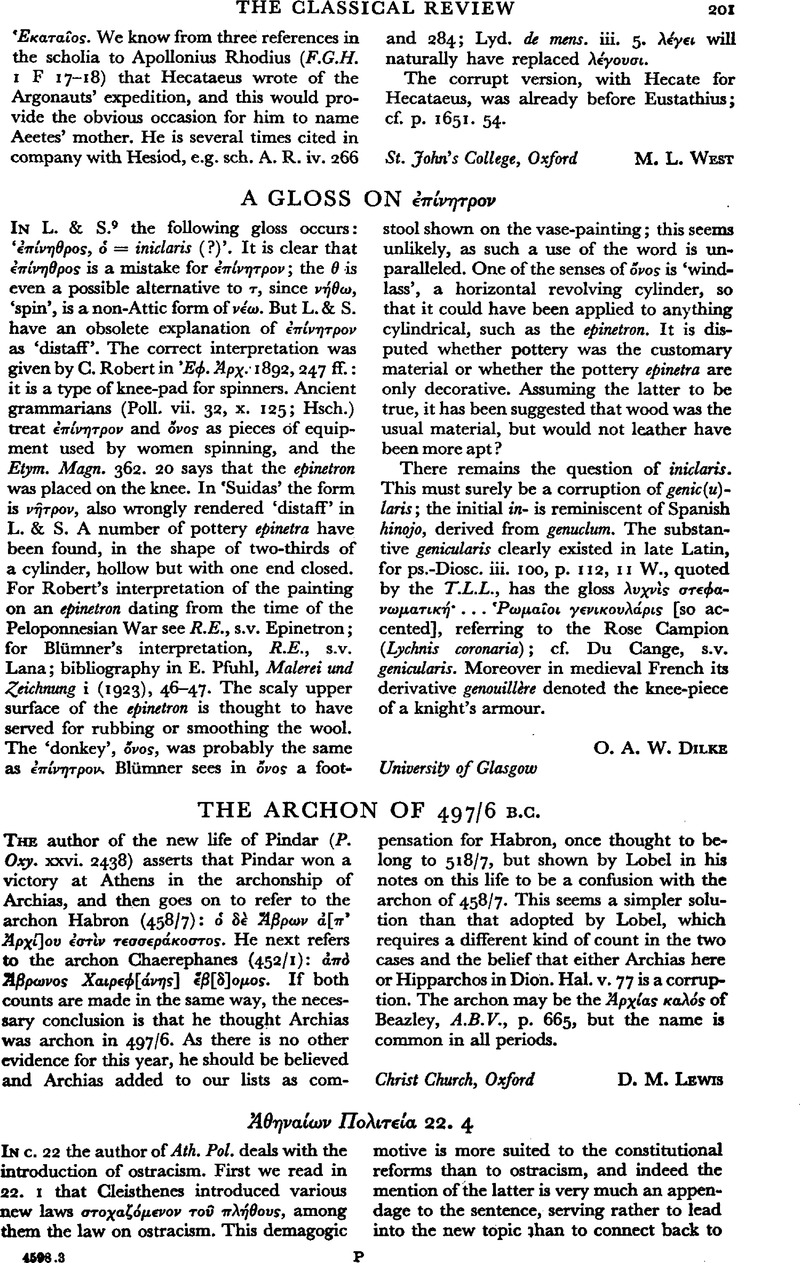Published online by Cambridge University Press: 27 February 2009

1 Hignett, , Hist. Ath. Const., p. 161Google Scholar; Robinson, , A.J.A. lvi (1952), p. 24Google Scholar; Jacoby, F.G.H. iiib Supp. i, 1231Google Scholar. The great majority of writers, whether on ostracism or on Ath. Pol., say nothing; even the commentators ad loc. (Sandys, Mathieu, von Fritz–Kapp) are silent.
2 εἴων οἰκεῖν τ⋯ν π⋯λιν need not imply any marked lapse of time. As soon as A, B, and C had been expelled, it could be said that the Athenians continued to allow X, Y, and Z to live in the city.
3 My argument is concerned only with the correct understanding of Ath. Pol.'s account; it should not be taken to imply that I believe that Cleisthenes in fact introduced the law or that Hipparchus was ever his opponent.